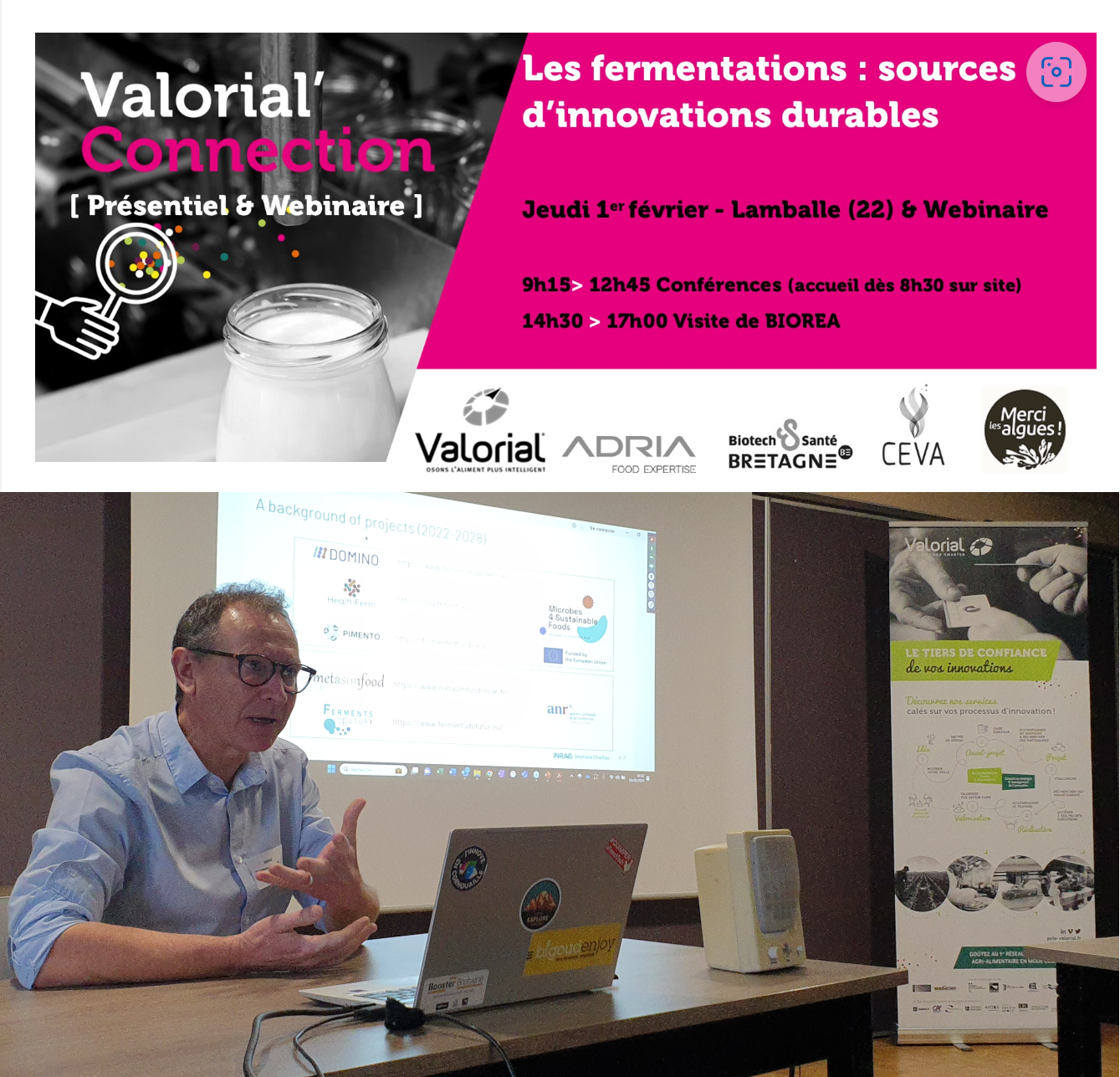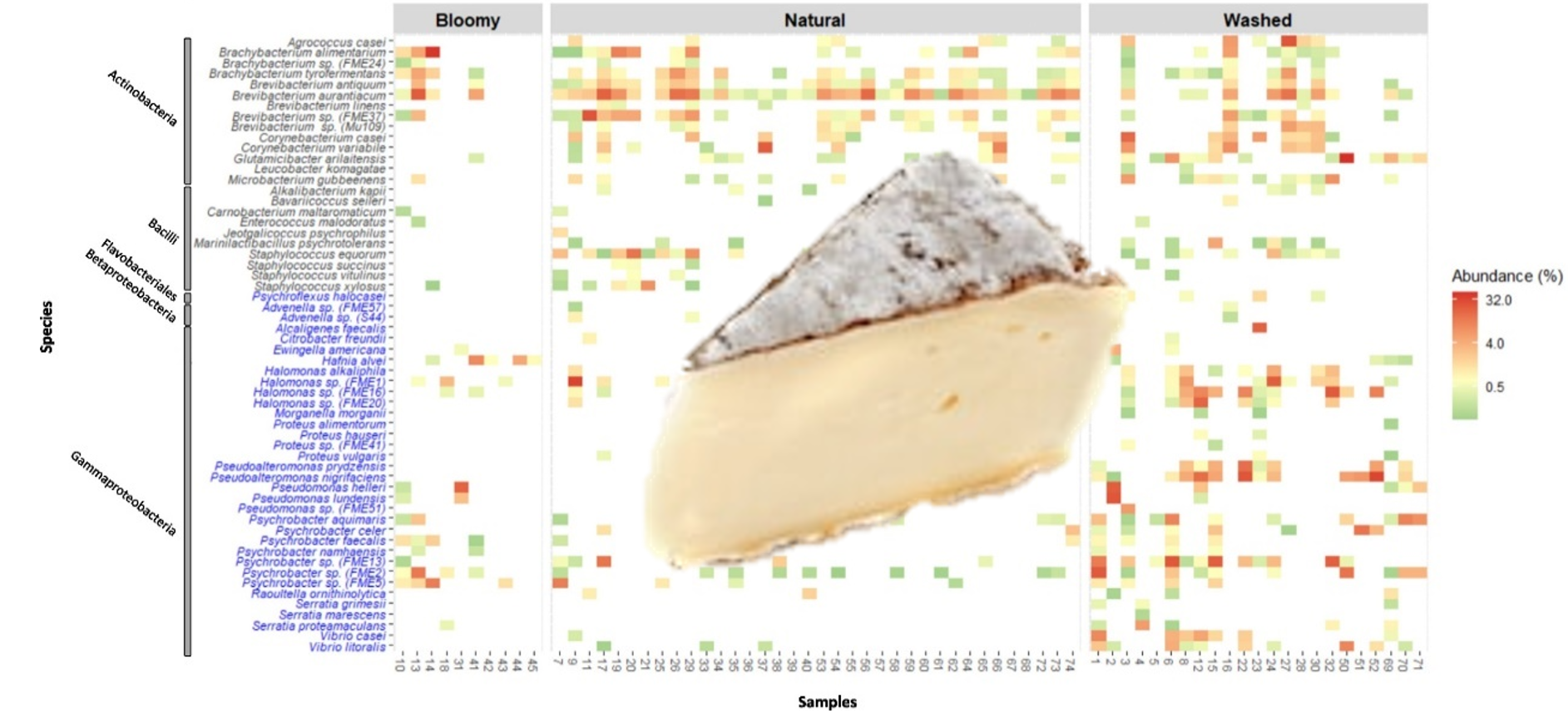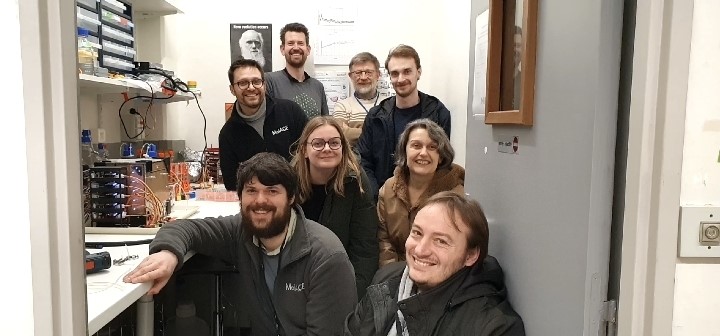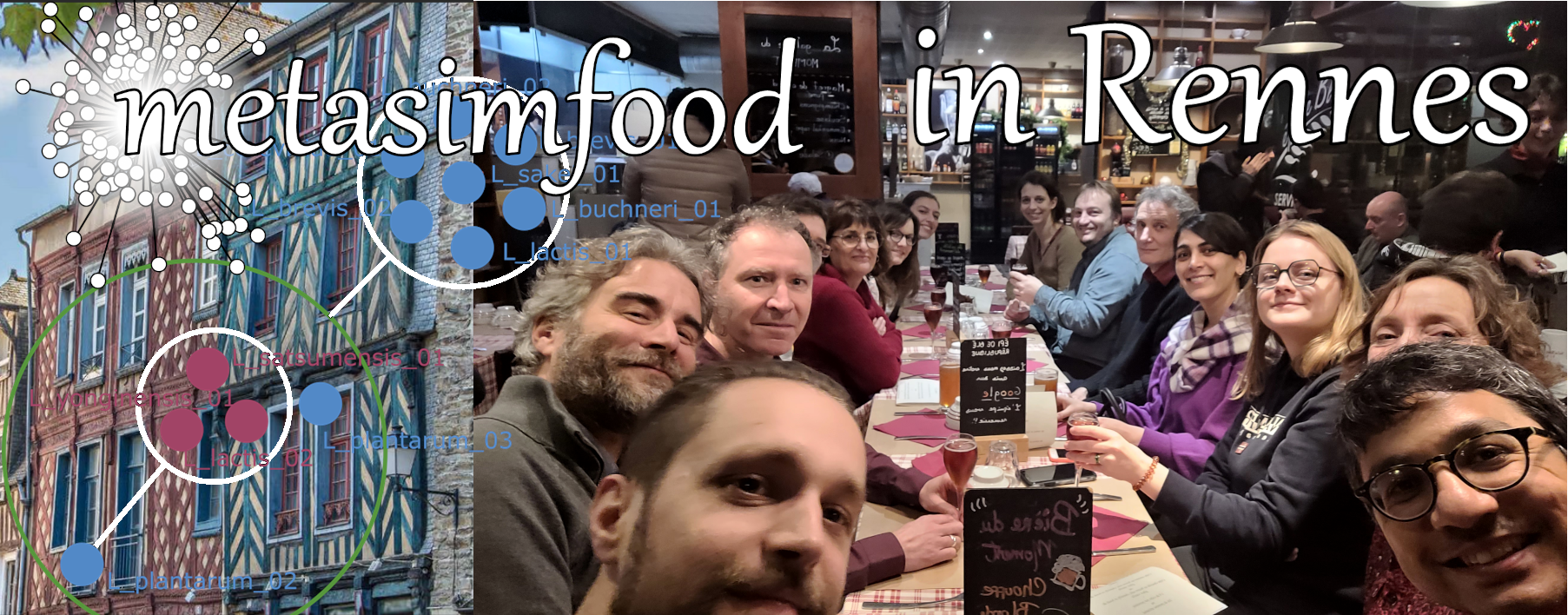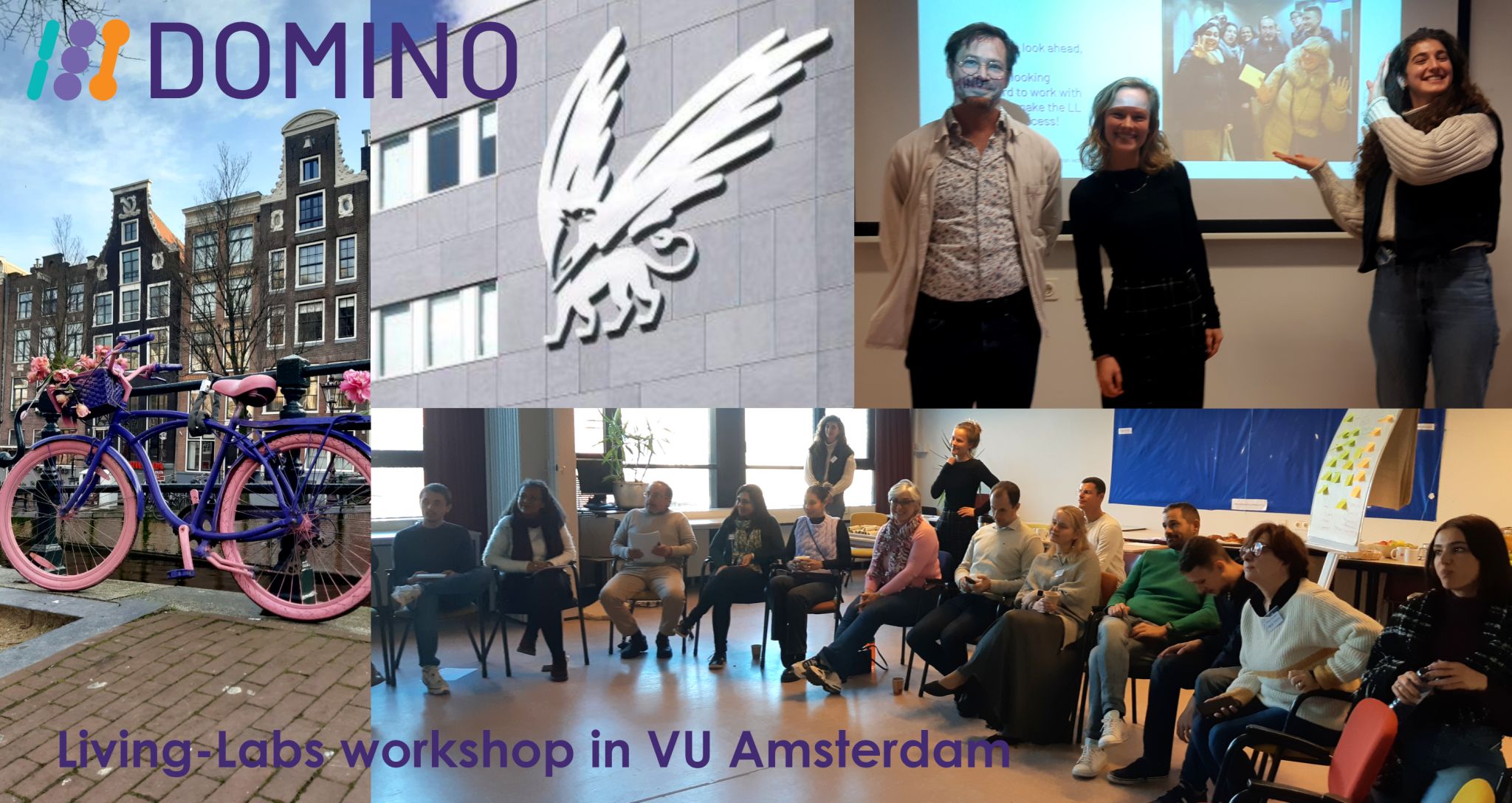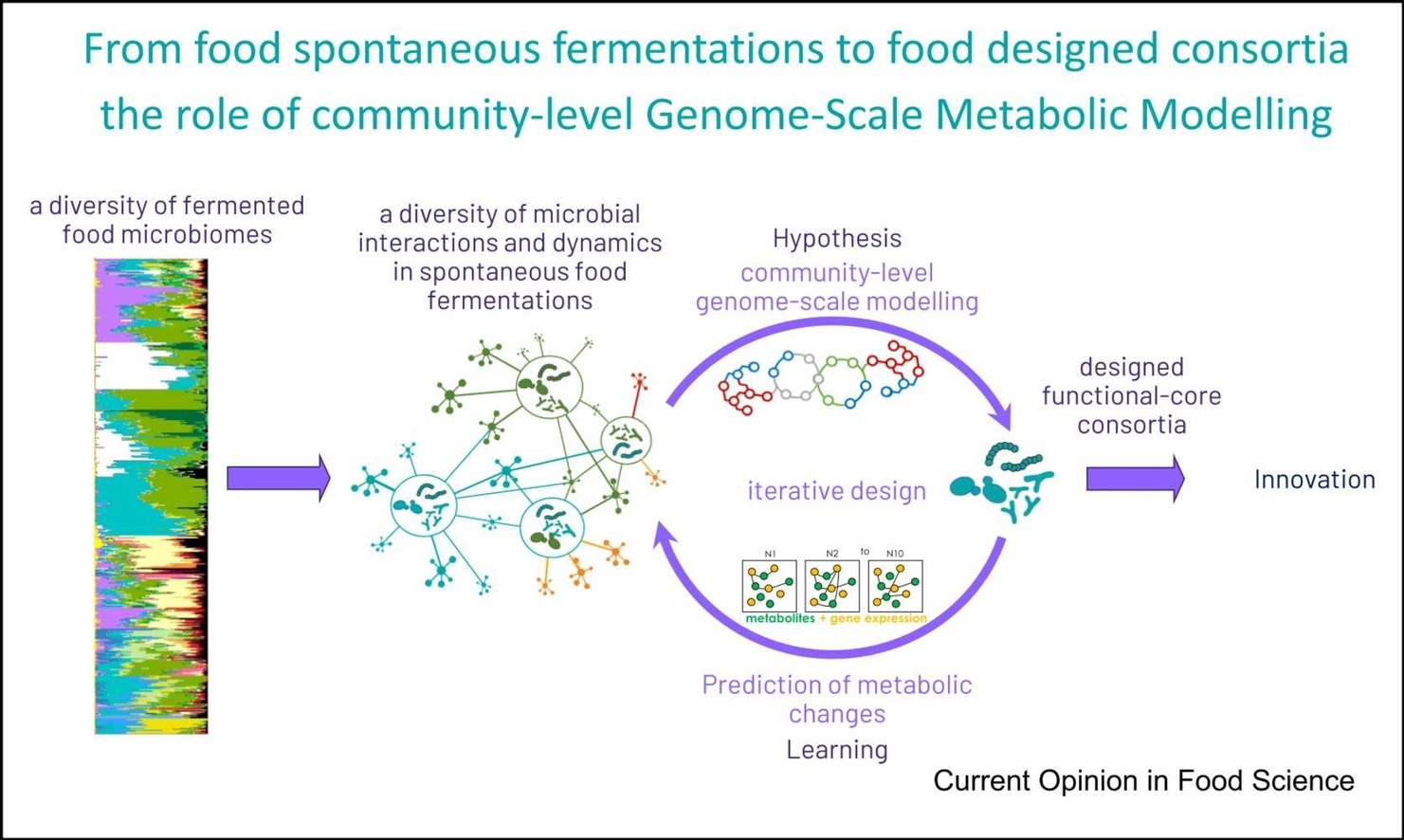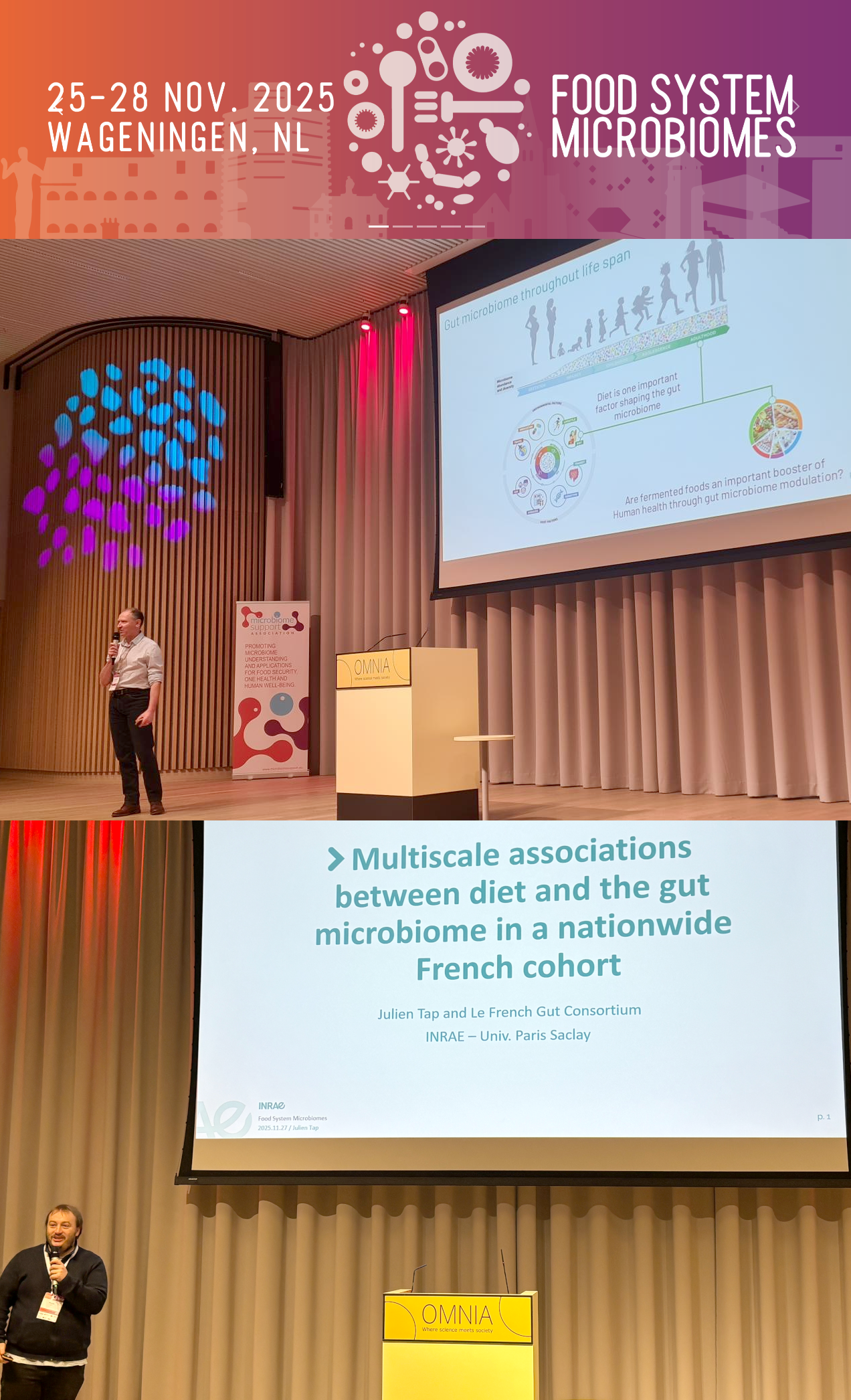The first Valorial’Connection event of the year was held at Lamballe this 1st February. It gathered more than 50 academic and AgriFood industry partners on site and as many online. Stéphane was invited to give a talk1 for presenting the EU DOMINO project and to talk, more specifically, on the role of data sciences in fermented foods area.
-
Chaillou S. The role of fermented food microbiota diversity on health: what contributions from data sciences?. https://hal.science/hal-04446192 ↩
